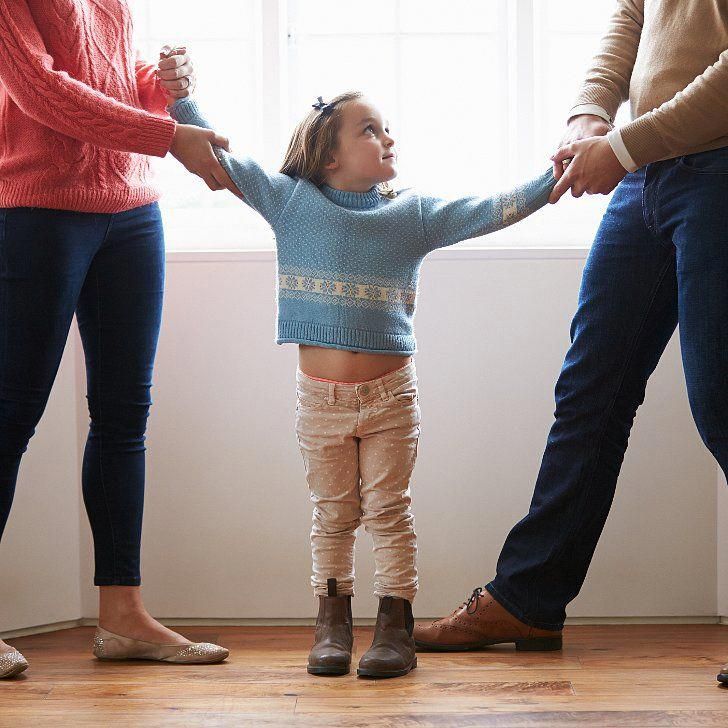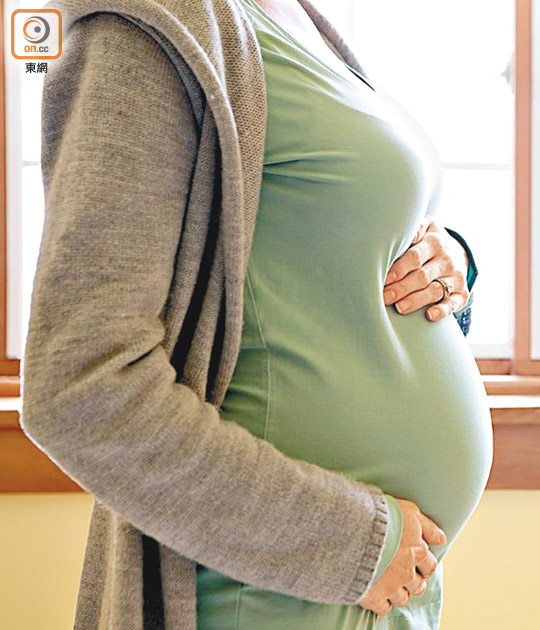How to divorce a child
How to Divorce Your Adult Children and Restore Your Sanity
I am known for exposing the “elephant in the living room.” Those things everybody knows but nobody is talking about. Not every mother-daughter relationship reads like a Hallmark card, and our culture makes that a shameful secret to bear.
Dr. Christiane Northrup suggested that the bonding hormones that flood a mother’s blood stream at childbirth stay with women for about 28 years.
It is no accident, then, that the first round of truly adult separation (not teenage rebellion) begins to rear its head somewhere around 30 for women and the menopause years for their mothers. For the first time, the veil begins to lift and we see each other for the women we have become.
Some estimate that 96% of American Families are dysfunctional in some way – making it the norm. But “normal” is not necessarily healthy, and it certainly falls short of the abundant life we’ve been promised.
Women are held responsible for the relational health of the world – at work, at home, family health and wellbeing, the sexuality, the promiscuity, the cause, the cure and the results. When a true perpetrator arises in a family, the mother protects ala Mama Bear. If she doesn’t die trying, she can later become a target.
Mom is apparently the one who knew (or should have known) what was happening at every moment of every day to their children – physically, emotionally, mentally and spiritually. After all, moms have eyes in the backs of their heads and are equipped with the unusual ability to read minds, right?
See also: Letting Go And The Art Of Parenting Adult Children
M. Scott Peck wrote, “Mental health is an ongoing process of dedication to reality at all costs.” The pinch point for grandmothers is that any loss of relationship with our adult children means strained relations – if not severed ties – with the grandchildren who now light up our lives.
I am a mother of three and grandmother to 11. I stayed with their father for more than 20 years believing that somehow I could make him feel loved enough to change.
Over time, each of my children has drawn close to me for healing, and pulled away for the same reason.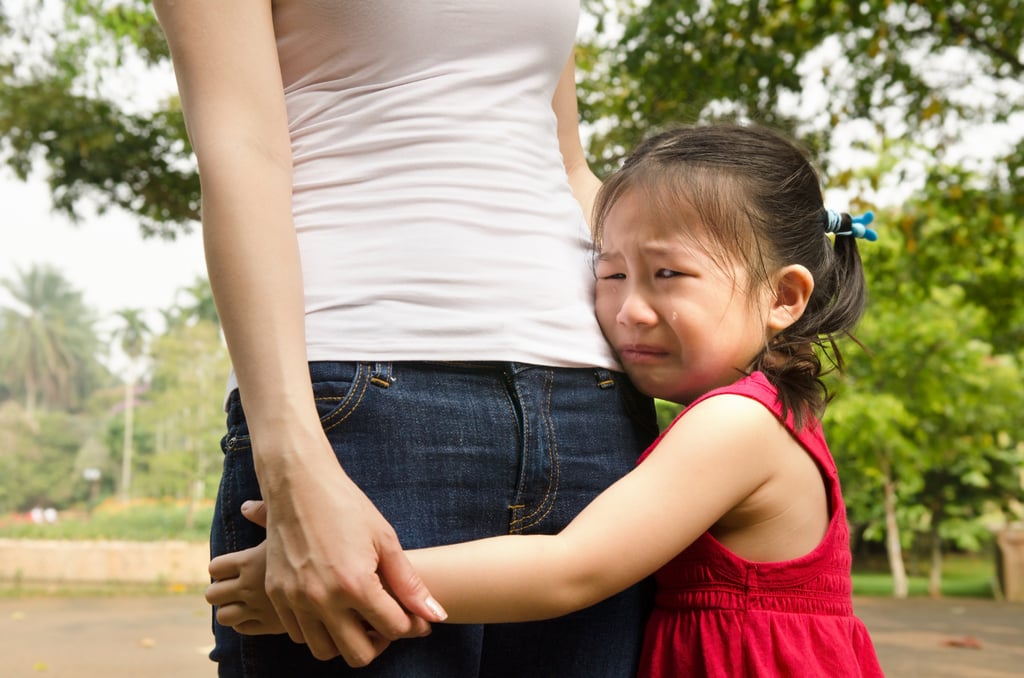 I am, after all, the one they hold responsible for the shifting emotional sand in their psyche.
I am, after all, the one they hold responsible for the shifting emotional sand in their psyche.
Ten years ago, I remarried a man whose children were also grown. We imagined that would alleviate the adjustments of step-families. In some ways, not having children in the home made it easier to forge our identity as a married couple.
Although we shared values, we didn’t share history with each others’ children. We each brought our traditions and expectations to bear. When I recently chose to divorce this man who had played “grandpa” to my children’s children, old wounds surfaced.
Had I known that to leave him meant I would lose my only local family, I probably would have stayed for the sake of the grandchildren. It’s that old programming baby boomer women still struggle with.
If something isn’t working, you try harder. Marital problems? Pray more, love more, give more, be patient, and wait it out. Suck it up, stuff it down, be quiet and don’t make waves.
I have identified four distinct stages in the journey to wholeness.
Our lives become (or continue to be) a carefully constructed illusion based on how it looks, what people will think, and what we imagine will get us the love and security we so desperately crave.
This is why grandmothers continue to “make peace at all costs” rather than saying what they see, need and want. Some have called it the disease to please.
DistantPretending that everything is okay when in our hearts we know that is not true can only go so far. We go along to get along. We smile in public and cry in private. We live a lie, and it eats at our souls every day.
Women think if we ignore it, maybe it will go away or time will heal all wounds. The thing is, time doesn’t heal buried pain. It has to be unearthed and acknowledged before it will pass away. Pain that gets buried alive poisons the rest of our lives.
DivorceDivorce is a harsh word when applied to our mother-child relationships, isn’t it? But it happens whether we acknowledge it or not. Divorce occurs when all communication has broken down and attempts at reconciliation fail.
Divorce occurs when all communication has broken down and attempts at reconciliation fail.
It is the most painful dark night of the soul. With divorce comes all the drama of severed relationships, he-said she-said finger pointing, and drama triangles where people talk about each other, but never directly to one another so healing could occur. We might as well lawyer up and some do. It’s called Grandparent Rights.
See also: The Detachment Wall: How To Let Go Of Your Adult Children
DoneLast is the place of acceptance. There is no anger, no angst, no more bargaining. It is where we accept what life is handing out right now and the fighting is done.
You have decided what you do and do not want, what you will and will not stand for, and are making decisions to move forward with or without the resolution you may have hoped for. You are free to stay or go because you have become dedicated to reality at all costs.
Do I wish I had capacity back then to do some things differently? Definitely.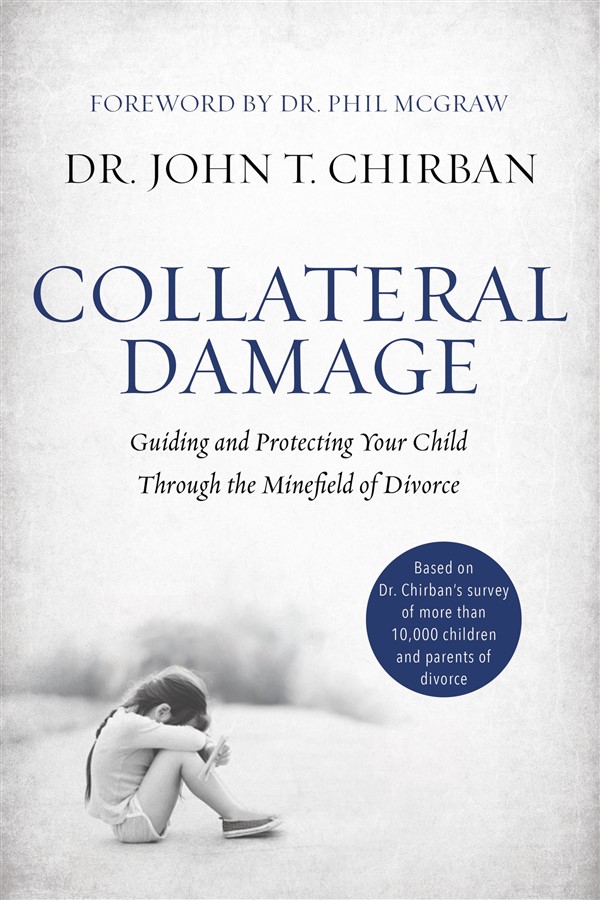 Do I regret what I allowed my children to endure because of the choices I made? Mm-hmm.
Do I regret what I allowed my children to endure because of the choices I made? Mm-hmm.
Is there anything I can do now to go back and change it? Not a damn thing. Does it serve anyone for me to live in remorse and regret? Nope. Not now, not ever. Never.
Nobody had a perfect childhood – at least nobody in my generational gene pool. We all did the best we could with what we had to work with at the time. That is as true today as it was generations ago.
The biggest healer for women in daughter divorces is to break the shame by breaking the silence. Let’s talk about what’s real and how to help live dreams without drama in our later years.
This article has generated several important conversations. Many mothers/grandmothers are going through similar realities each with their unique set of situations. Talking and being vulnerable with one another is part of the healing process – as we can tell by reading your chats. Knowing that you are not alone helps in accepting the outcome of your distanced relationship with your adult children.
Many have mentioned that therapy has helped them through this difficult time in their lives. Online therapy sessions are now readily available and affordable. Websites like Better Help, Talk Space, and Online Therapy have therapists and mental health professionals available to listen and guide you.
Where do you find yourself in the process of letting your adult children go? Where are you on the journey to finding yourself in your sixties? Please share your thoughts below!
Children and Divorce - HelpGuide.org
parenting
For children, separation and divorce can be an especially sad, stressful, and confusing time. But there are ways to help your kids cope with the upheaval of a breakup.
Helping your child through a divorce
A separation or divorce is a highly stressful and emotional experience for everyone involved, but children often feel that their whole world has turned upside down. At any age, it can be traumatic to witness the dissolution of your parents’ marriage and the breakup of the family. Kids may feel shocked, uncertain, or angry. Some may even feel guilty, blaming themselves for the problems at home. Divorce is never a seamless process and, inevitably, such a transitional time doesn’t happen without some measure of grief and hardship. But you can dramatically reduce your children’s pain by making their well-being your top priority.
Kids may feel shocked, uncertain, or angry. Some may even feel guilty, blaming themselves for the problems at home. Divorce is never a seamless process and, inevitably, such a transitional time doesn’t happen without some measure of grief and hardship. But you can dramatically reduce your children’s pain by making their well-being your top priority.
Your patience, reassurance, and listening ear can minimize tension as your children learn to cope with unfamiliar circumstances. By providing routines your kids can rely on, you remind them that they can count on you for stability, structure, and care. And by maintaining a working relationship with your ex, you can help your kids avoid the stress and anguish that comes with watching parents in conflict. With your support, your kids can not only successfully navigate this unsettling time, but even emerge from it feeling loved, confident, and strong—and even with a closer bond to both parents.
How to tell kids about divorce
When it comes to telling your kids about your divorce, many parents freeze up. Make the conversation a little easier on both yourself and your children by preparing what you're going to say before you sit down to talk. If you can anticipate tough questions, deal with your own anxieties ahead of time, and plan carefully what you'll be telling them, you will be better equipped to help your children handle the news.
Make the conversation a little easier on both yourself and your children by preparing what you're going to say before you sit down to talk. If you can anticipate tough questions, deal with your own anxieties ahead of time, and plan carefully what you'll be telling them, you will be better equipped to help your children handle the news.
What to say and how to say it
Difficult as it may be, try to strike an empathetic tone and address the most important points right up front. Give your children the benefit of an honest—but kid-friendly—explanation.
Tell the truth. Your kids are entitled to know why you are getting a divorce, but long-winded reasons may only confuse them. Pick something simple and honest, like “We can't get along anymore.” You may need to remind your children that while sometimes parents and kids don't always get along, parents and kids don't stop loving each other or get divorced from each other.
Say “I love you.” However simple it may sound, letting your children know that your love for them hasn't changed is a powerful message.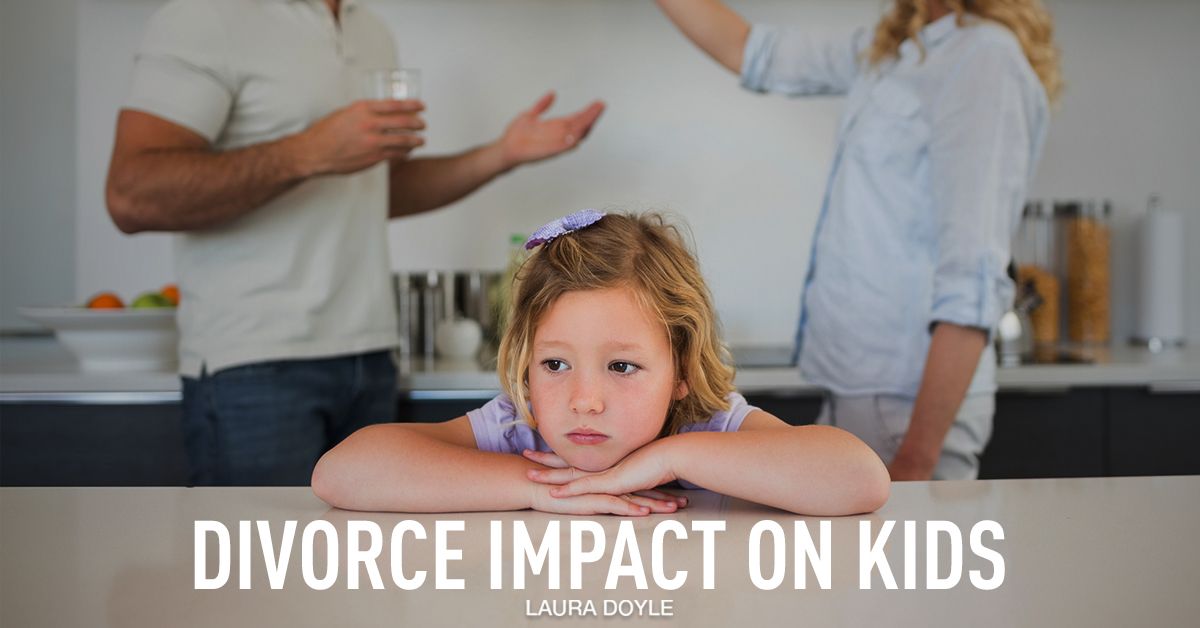 Tell them you'll still be caring for them in every way, from fixing their breakfast to helping them with homework.
Tell them you'll still be caring for them in every way, from fixing their breakfast to helping them with homework.
Address changes. Preempt your kids' questions about changes in their lives by acknowledging that some things will be different, and other things won't. Let them know that together you can deal with each detail as you go.
Avoid blaming
It's vital to be honest with your kids, but without being critical of your spouse. This can be especially difficult when there have been hurtful events, such as infidelity, but with a little diplomacy, you can avoid playing the blame game.
Present a united front. As much as you can, try to agree in advance on an explanation for your separation or divorce—and stick to it.
Plan your conversations. Make plans to talk with your children before any changes in the living arrangements occur. And plan to talk when your spouse is present, if possible.
Show restraint. Be respectful of your spouse when giving the reasons for the separation.
Be respectful of your spouse when giving the reasons for the separation.
Help your child grieve the divorce
For kids, divorce can feel like an intense loss—the loss of a parent, the loss of the family unit, or simply the loss of the life they knew. You can help your children grieve their loss and adjust to new circumstances by helping them express their emotions.
[Read: Coping with Grief and Loss]
Listen. Encourage your child to share their feelings and really listen to them. They may be feeling sadness, loss or frustration about things you may not have expected.
Help them find words for their feelings. It's normal for children to have difficulty expressing their feelings. You can help them by noticing their moods and encouraging them to talk.
Let them be honest. Children might be reluctant to share their true feelings for fear of hurting you. Let them know that whatever they say is okay. They may blame you for the divorce but if they aren't able to share their honest feelings, they will have a harder time working through them.
They may blame you for the divorce but if they aren't able to share their honest feelings, they will have a harder time working through them.
Make talking about the divorce an ongoing process. As children age and mature, they often have new questions, feelings, or concerns about what happened, so you may want to go over the same ground again and again.
Acknowledge their feelings. You may not be able to fix their problems or change their sadness to happiness, but it is important for you to acknowledge their feelings rather than dismissing them. You can also inspire trust by showing that you understand.
Let kids know they're not at fault
Many kids believe that they had something to do with the divorce, recalling times they argued with their parents, received poor grades, or got in trouble. To help your kids let go of this misconception:
Set the record straight. Repeat why you decided to get a divorce. Sometimes hearing the real reason for your decision can help.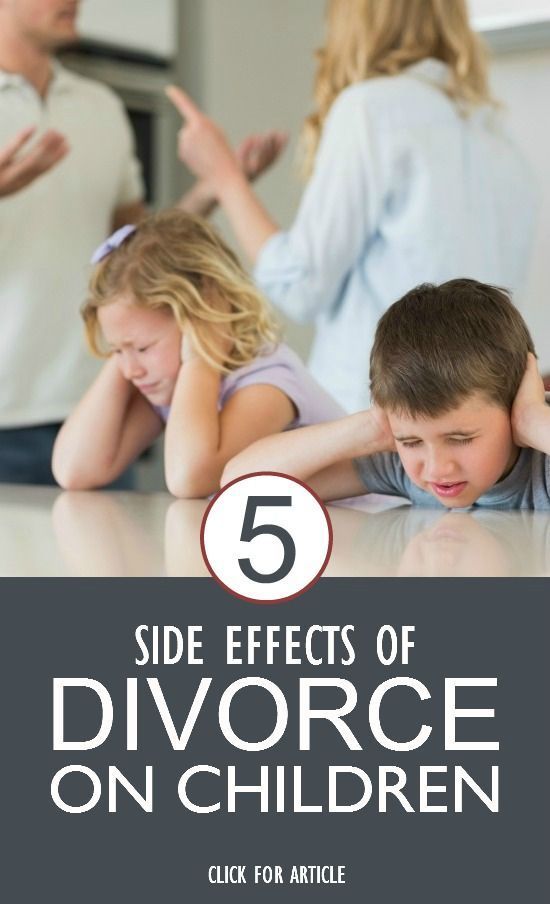
Be patient. Kids may seem to “get it” one day and feel unsure the next. Treat your child's confusion or misunderstandings with patience.
Reassure. As often as you need to, remind your children that both parents will continue to love them and that they are not responsible for the divorce.
Give reassurance and love
Children have a remarkable ability to heal when given the support and love they need. Your words, actions, and ability to remain consistent are all important tools to reassure your children of your unchanging love.
Both parents will be there. Let your kids know that even though the physical circumstances of the family unit will change, they can continue to have healthy, loving relationships with both of their parents.
It'll be okay. Tell kids that things won't always be easy, but they will work out. Knowing everything will be alright can provide incentive for your kids to give a new situation a chance.
Closeness. Physical closeness—in the form of hugs, pats on the shoulder, or simple proximity—has a powerful way of reassuring your child of your love.
Be honest. When kids raise concerns or anxieties, respond truthfully. If you don't know the answer, say gently that you aren't sure right now, but that you'll find out and it will be okay.
Provide stability through the divorce
While it's good for kids to learn to be flexible, adjusting to many new circumstances at once can be very difficult. Help your kids adjust to change by providing as much stability and structure as possible in their daily lives.
Remember that establishing structure and continuity doesn't mean that you need rigid schedules or that mom and dad's routines need to be exactly the same. But creating some regular routines at each household and consistently communicating to your children what to expect will provide your kids with a sense of calm and stability.
The comfort of routines
Kids feel safer and more secure when they know what to expect next. Knowing that, even when they switch homes, dinnertime is followed by homework and then a bath, for example, can set a child's mind at ease.
Maintaining routine also means continuing to observe rules, rewards, and discipline with your children. Resist the temptation to spoil kids during a divorce by not enforcing limits or allowing them to break rules.
Take care of yourself
The first safety instruction for an airplane emergency is to put the oxygen mask on yourself before you put it on your child. When it comes to helping your kids through your divorce, the take home message is: take care of yourself so that you can be there for your kids.
Coping with your divorce or breakup
The breakup of a relationship can trigger all sorts of painful and unsettling emotions. As well as grieving the loss of your relationship, you may feel confused, isolated, and fearful about the future. By learning how to cope with the pain of a separation or divorce in healthy ways, you'll be better able to stay calm and help your kids feel more at ease.
By learning how to cope with the pain of a separation or divorce in healthy ways, you'll be better able to stay calm and help your kids feel more at ease.
[Read: Dealing with a Breakup or Divorce]
Exercise often and eat a healthy diet. Exercise relieves the pent-up stress and frustration that's commonplace with divorce. And although cooking at home (or learning to cook for one) involves more effort than ordering in, eating healthfully will make you feel better, inside and out—so skip the junk and convenience food.
See friends often. It may be tempting to hole up and avoid seeing friends and family who will inevitably ask about the divorce—but the reality is that face-to-face support from others is vital for relieving the stress of a breakup and getting you through this difficult time. If you don't want to talk about your breakup, just ask friends to avoid the topic; they'll understand.
Keep a journal. Writing down your feelings, thoughts, and moods can help you release tension, sadness, and anger. As time passes, you can look back on just how far you've come.
As time passes, you can look back on just how far you've come.
Seek support
At the very least, divorce is complicated and stressful—and can be devastating without support.
Lean on friends. Talk face-to-face with friends or a support group about any difficult emotions you're feeling—such as bitterness, anger, frustration—so you don't take it out on your kids. If you've neglected your social circle while being married and don't feel you have anyone to confide in, it's never too late to build new friendships.
Never vent negative feelings to your child. Whatever you do, do not use your child to talk it out like you would with a friend.
Keep laughing. Try to inject humor and play into your life and the lives of your children as much as you can; it can relieve stress and give you all a break from sadness and anger.
See a therapist. If you are feeling intense anger, fear, grief, shame, or guilt, find a professional to help you work through those feelings.
Affordable private online therapy. Get instant help, on any device, wherever you are in the world. Start feeling better today!
GET 20% OFF
With over 25,000 licensed counselors, BetterHelp has a therapist that fits your needs. Sign up today and get matched.
GET 20% OFF
Get professional online counseling for relationship or marital issues. It’s confidential and convenient to get started.
GET 20% OFF
Work with your ex
Conflict between parents—separated or not—can be very damaging for kids. It's crucial to avoid putting your children in the middle of your fights, or making them feel like they have to choose between you. The following tips can save your kids a lot of heartache.
Take it somewhere else. Never argue in front of your children, whether it's in person or over the phone. Ask your ex to talk another time, or drop the conversation altogether.
Use tact. Refrain from talking with your children about details of the other parent's behavior.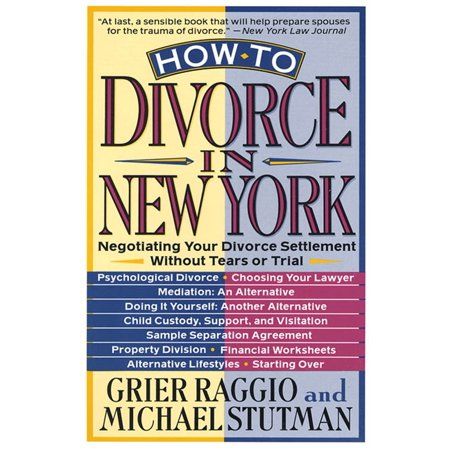 It's the oldest rule in the book: if you don't have anything nice to say, don't say anything at all.
It's the oldest rule in the book: if you don't have anything nice to say, don't say anything at all.
Be nice. Be polite in your interactions with your ex-spouse. This not only sets a good example for your kids but can also encourage your ex to be gracious in response.
Look on the bright side. Choose to focus on the strengths of all family members. Encourage children to do the same.
Work on it. Make it a priority to develop an amicable relationship with your ex-spouse as soon as possible. Watching you be friendly can reassure children and teach problem-solving skills as well.
Resolving parenting conflicts with your ex
If you find yourself, time after time, locked in battle with your ex over the details of parenting, try to step back and remember the bigger purpose at hand.
[Read: Co-Parenting Tips for Divorced Parents]
Remind yourself: what's best for your kids in the long run? Having a good relationship with both parents throughout their lives.
Think ahead in order to stay calm. If you can keep long-term goals in mind—your children's physical and mental health, your independence—you may be able to avoid disagreements about daily details.
Consider everyone's well-being. The happiness of your children, yourself, and, yes, even your ex, should be the broad brushstrokes in the big picture of your new lives after divorce.
Advertisement
Reduce Stress, Enhance Your Health and Achieve Balance in Your Life
Learn how Mindfulness-Based Stress Reduction (MBSR) can help you to experience less anxiety, less stress, and less physical and emotional pain and illness with this online program from Sounds True.
SIGN UP TODAY
Professional help for kids following divorce
Some children go through divorce with relatively few problems, while others have a very difficult time. It's normal for kids to feel a range of difficult emotions, but time, love, and reassurance should help them to heal.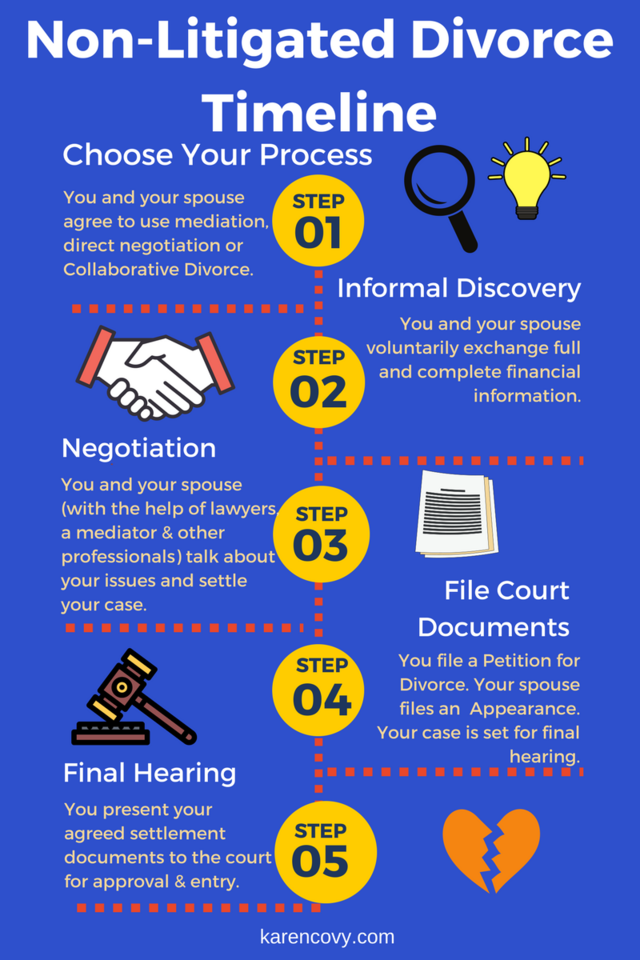 If your kids remain overwhelmed, though, you may need to seek professional help.
If your kids remain overwhelmed, though, you may need to seek professional help.
It will take some time for your kids to work through their issues about the separation or divorce, but you should see gradual improvement over time.
Red flags for more serious problems
If things get worse rather than better after several months following your divorce, it may be a sign that your child is stuck in depression, anxiety, or anger and could use some additional support. Watch for these warning signs of divorce-related depression or anxiety in kids:
- Sleep problems
- Poor concentration
- Trouble at school
- Drug or alcohol abuse
Discuss these or other divorce-related warning-signs with your child's doctor, teachers, or consult a child therapist for guidance on coping with specific problems.
Authors: Gina Kemp, M.A., Melinda Smith, M.A., and Jeanne Segal, Ph.D.
- References
Anderson, J.
 (2014). The Impact of Family Structure on the Health of Children: Effects of Divorce. The Linacre Quarterly, 81(4), 378–387. https://doi.org/10.1179/0024363914Z.00000000087
(2014). The Impact of Family Structure on the Health of Children: Effects of Divorce. The Linacre Quarterly, 81(4), 378–387. https://doi.org/10.1179/0024363914Z.00000000087Children and Divorce. (n.d.). Retrieved July 13, 2022, from https://www.aacap.org/AACAP/Families_and_Youth/Facts_for_Families/FFF-Guide/Children-and-Divorce-001.aspx
Helping Children Understand Divorce | MU Extension. (n.d.). Retrieved July 13, 2022, from https://extension.missouri.edu/catalog/product/view/id/2280/
How to Talk to Your Children about Divorce—HealthyChildren.org. (n.d.). Retrieved July 13, 2022, from https://www.healthychildren.org/English/healthy-living/emotional-wellness/Building-Resilience/Pages/How-to-Talk-to-Your-Children-about-Divorce.aspx
Helping Your Child Through a Divorce – Information on coping with divorce. (KidsHealth)
Tips for Divorcing Parents – Suggestions about communicating with your child after a split. (KidsHealth)
Helping Children Understand Divorce – Tips for talking with children about divorce. (University of Missouri)
(University of Missouri)
Helping Children Adjust to Divorce: A Guide for Teachers – Guiding children through the transition time after a divorce. (University of Missouri)
A Kid’s Guide to Divorce – Answers children’s most common concerns and questions. (KIdsHealth)
Dealing with Divorce – Ways for teens to cope with their parents’ divorce. (KidsHealth)
Last updated: November 1, 2022
rules and methods of divorce
Alisa Markina
lawyer
Author profile
In almost all cases, if the spouses have minor children, they will have to divorce through the court, and not through the registry office.
And for everything to be successful, you need to collect documents and tell the judge how the fate of common children will turn out. It takes a little longer to get a divorce in court, but it is not necessary to waste time and come to meetings.
I will tell you about the rules and methods of dissolution of a marriage if there are children, and what issues the court will decide when it cannot be dispensed with.
Rules for divorce when there are children
According to the law, if the spouses have common minor children, they can divorce only through the courts.
But there are three exceptions to this rule. It is possible to get a divorce through the registry office at the request of one of the spouses, even if there are minor children in the family:
- if the second spouse is sentenced to imprisonment for a period of three years or more;
- he was declared missing by the court. Such recognition is possible when no one knows where a person is for a whole year;
- the second spouse has been declared legally incompetent due to a mental disorder.
item 2 of Art. 19 SK RF
art. 42, 29 of the Civil Code of the Russian Federation
In such cases, the husband or wife may file an application for divorce with the registry office along with a sentence or court decision. And the consent of the second spouse is not required for a divorce.
What to do? 08/23/18
How to recognize a person as incompetent? I feel sorry for my grandmother, but I'm afraid for the apartment
If the family has only children over 18 years old and both spouses agree to a divorce, they only need to submit an application to the registry office at the place of residence of one of the spouses or at the place of marriage registration. This can be done even through the portal of public services. If one of the spouses does not agree to a divorce, you will have to go to court.
Art. 22 SK RF
If the child is not common. Spouses who do not have common children do not need to go to court to get a divorce - the law applies only to families that have common minor children. Therefore, if both spouses agree to a divorce, they can dissolve the marriage through the registry office.
If the spouse is pregnant or has a child under one year old. In this case, an important restriction applies - the husband is not entitled to demand a divorce without the consent of his wife. And it doesn’t matter if they have a common child or not - in any case, it is impossible to get a divorce without the consent of the spouse. Including when the child was born dead or died before the year.
In this case, an important restriction applies - the husband is not entitled to demand a divorce without the consent of his wife. And it doesn’t matter if they have a common child or not - in any case, it is impossible to get a divorce without the consent of the spouse. Including when the child was born dead or died before the year.
Art. 17 SK RF
paragraph 1 of the Resolution of the Plenum of the Supreme Court of the Russian Federation dated November 5, 1998 No. 15
When the child is one year old, the husband will be able to demand a divorce. And if the child is registered on him, you will have to divorce through the court. And if for another man - you can through the registry office.
If there is a child under three years old or two or more minor children, the same rule applies - if the children are common, divorce is possible only through the courts. Even if not all minor children in the family are common, you still have to divorce in court.
If there is a child with a disability in the family, this does not change the divorce rules in any way. If the child is over 18 years old, then regardless of the level of his general development, the parents can divorce through the registry office. And if he is a minor and common to spouses, they will get divorced in court.
Ways of dissolution of marriage in the presence of minor children
Through a magistrate , it is possible to dissolve a marriage if the husband and wife have agreed with whom the common children will live. In the same process, the spouses can divide the jointly acquired property, but only up to 50,000 R.
Art. 23 Code of Civil Procedure of the Russian Federation
You must apply to the district court if the parents have not agreed on who the minor children will live with. Or they agreed, but at the same time with the termination they want to divide the joint property more than 50,000 R.
Art. 24 Code of Civil Procedure of the Russian Federation
Divorce through the registry office, if there are minor children, is possible only when the spouses fall under one of the three exceptions that I wrote about above. However, you still have to go through the court to prove that nothing has been known about the second parent for a year or that, due to a mental disorder, he does not understand the meaning of his actions and does not manage them.
With the received court decision in the case of recognizing a spouse as missing or incapacitated, you can apply to the registry office with an application for divorce.
The same if one of the spouses is sentenced to imprisonment for a term of at least three years. That is, when the trial in his case has already taken place and the verdict has been passed. With this verdict, the second spouse can apply to the registry office, even if the family has common minor children.
State duty for divorce through the registry office for the three specified exceptions - 350 R.
art. 333.26 NK RF
This is how the divorce certificate issued by the registry office looks like. If the spouses divorce due to the fact that one of them is deprived of liberty, missing or incapacitated, then in the line with the reason indicate the court decision or sentenceWhat issues the court will decide
In order to make a decision on the dissolution of a marriage, the court must determine with which of the parents the minor children will live after the divorce. And also which of the parents and how much child support will pay.
Art. 24 SK RF
Additionally, if both spouses or one of them made such claims, the court decides:
- how joint property is divided;
- whether one of the spouses will receive maintenance for himself.
I'll tell you more about it.
/guide/to-file-for-support/
How to file for child support
WHAT ISSUES THE COURT WILL SOLVE
Determining the place of residence of the child In the event of a divorce, parents must agree with whom their common child will live and as a second the parent will communicate with him.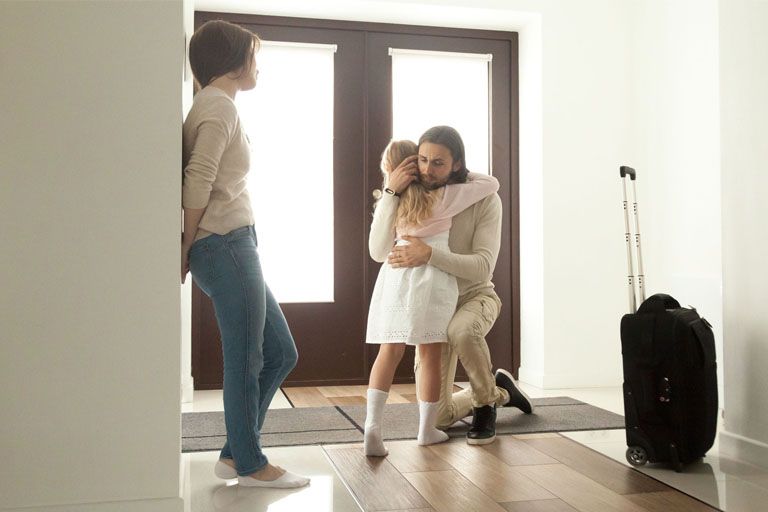 This agreement can be made in writing.
This agreement can be made in writing.
If the spouses cannot agree with which of them the child will remain, the court will determine this. The court is also obliged to consider such an issue if the agreement entered into by the parents violates the interests of the children or one of the spouses.
The court will take into account:
- the child's attachment to mother and father, as well as to brothers, sisters and other family members;
- age of the child;
- moral and other personal qualities of parents;
- relationship between each parent and child;
- whether parents can create suitable conditions for their child's upbringing and development;
- in what mode do parents work, what is their financial situation;
- other circumstances that indicate the situation in the place of residence of each of the parents.

/guide/the-parent-trap/
With whom the child will remain after the divorce
All this does not mean that if one of the parents earns more and lives in better conditions, then the child will be left with him. The court will evaluate all the circumstances and make a decision based on the interests of the child.
paragraph 5 of the Resolution of the Plenum of the Supreme Court of the Russian Federation dated May 27, 1998 No. 10
Also, if there is a dispute about the place of residence of the child, the guardianship authorities will be invited to the process. They will check the living conditions of both parents, draw up housing inspection reports and give a conclusion where the child will be more comfortable. This conclusion will also be taken into account by the court.
Art. 78 SK RF
When the child decides. By law, a child of any age has the right to express his opinion on all family matters that affect his interests. Therefore, children will definitely be heard in court. If the child is over 10 years old, the court is obliged not only to listen, but also to take into account his opinion.
Therefore, children will definitely be heard in court. If the child is over 10 years old, the court is obliged not only to listen, but also to take into account his opinion.
But “taking into account opinions” does not mean that the child decides the issue. In any case, the court will not make a decision that is contrary to the interests of a minor: for example, if he wants to live with a parent who does not have time to raise him.
/prava/prinesut-stakan-vody/
Obligations of parents
Parental rights of a spouse who lives separately. A parent with whom a child will not live after a divorce retains the rights and obligations to communicate with him, participate in his upbringing and resolve issues about his education and health. Parents can agree on the procedure for communicating with the child by concluding a written agreement - at a notary public or in court with the participation of guardianship authorities.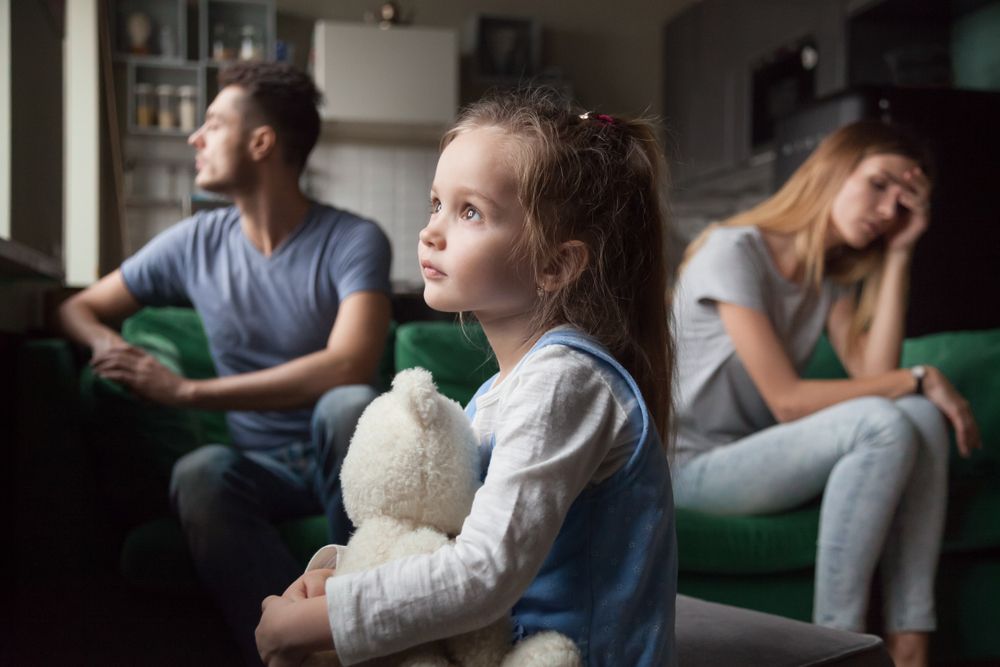
Art. 66 SK RF
The parent with whom the minor will live is not entitled to prevent the ex-spouse from exercising his parental rights and obligations. The exception is if such communication harms the child.
What to do? 06/19/19
The ex-wife does not allow communication with the child
Spouses can conclude an agreement on the procedure for the exercise of rights by the parent who lives separately from the child. In this example, in one agreement, two issues are resolved at once - about the place of residence of the child and how the second parent will exercise his rights and obligations. It is not necessary to certify such an agreement with a notaryWHAT ISSUES WILL THE COURT SOLVE
Determining the amount of alimonyThe payment of alimony for the maintenance of common children is another important issue that the court must decide, even if none of the parents mention this in the claims.
Parents are required by law to support their minor children.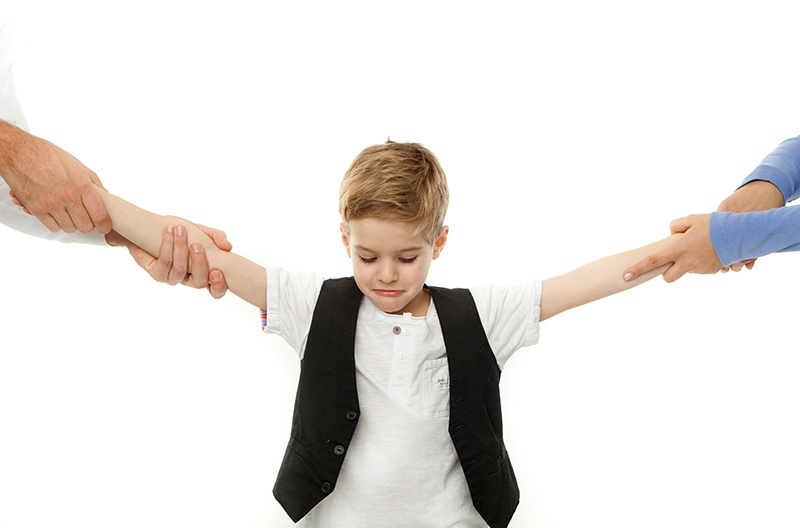 How to do this, parents decide on their own. You can agree orally, but it is more reliable to conclude an agreement with a notary.
How to do this, parents decide on their own. You can agree orally, but it is more reliable to conclude an agreement with a notary.
If an agreement cannot be reached, the amount of alimony will be determined by the court during the divorce proceedings. Usually, maintenance for one child is 1/4 of the income, for two children - 1/3, for three or more - half of the income of the parent who pays them. But if the income is unstable, the parent works unofficially, or the child needs expensive treatment, the court may order alimony in a fixed amount of money.
Art. 81 SK RF
Not only children have the right to alimony. They can also be received by:
- a mother who is caring for a common child under three years of age;
- a needy ex-spouse who is caring for a common child with a disability;
- a former spouse who, during the marriage or within a year after the divorce, received a disability;
- former spouse who retired within five years of the divorce if the marriage was long-term.
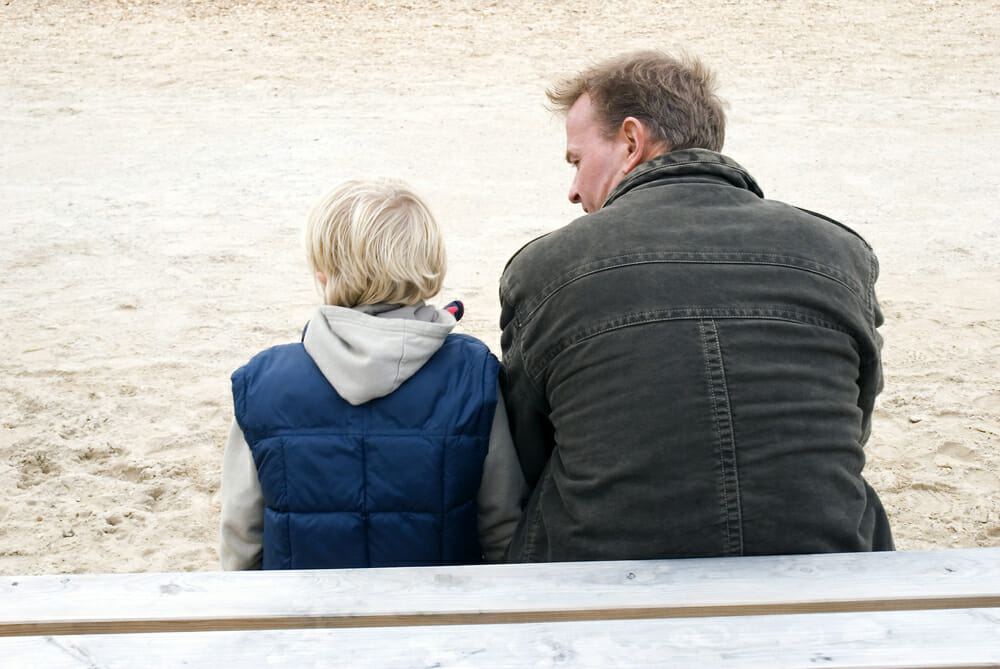
Art. 90 SK RF
I talked about when a former spouse can demand alimony for himself in another article. Therefore, I will only emphasize that the court will consider the issue of such alimony during the divorce proceedings only if one of the spouses stated this in the lawsuit. That is, on its own, as in the case of child support, the court will not raise this issue.
/alimony/
How to calculate and pay alimony
It is also important that alimony for the maintenance of the former spouse will be assigned only if the second spouse has the opportunity to pay them. Therefore, the court will necessarily analyze his financial situation and other circumstances that deserve attention.
Art. 91 SK RF
WHAT QUESTIONS WILL THE COURT SOLVE
How property is divided in a divorce if there are children As a general rule, everything that spouses bought in marriage with common money is divided equally.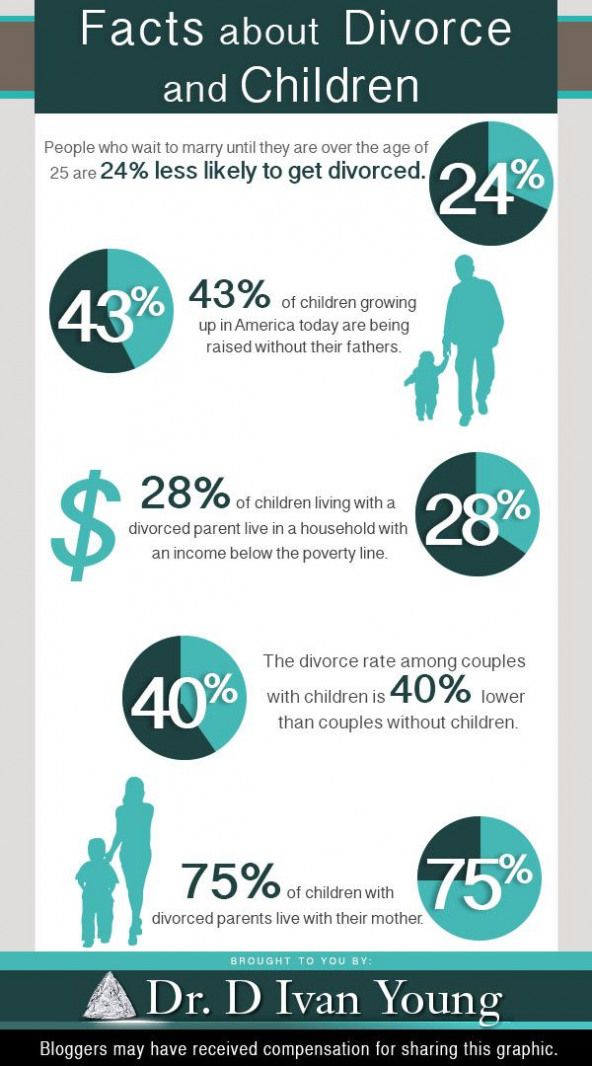 But if there are children, the process is a little different.
But if there are children, the process is a little different.
Section 5, Art. 38 SK RF
Personal belongings of children remain with the parent with whom they will live. This is not only about clothes and shoes, but also about a soccer ball, a violin and 30 volumes of children's encyclopedias, no matter how much they cost. Contributions in the name of children during a divorce are also not divided - they are considered to belong to the children, and not the common property of the spouses.
If spouses bought an apartment in marriage, but fully or partially registered it for children, then this housing or part of it is not divided upon divorce. The same applies to transactions with the use of maternity capital: the share of children belongs to them until they decide to dispose of it after the age of majority.
/guide/end-of-marriage/
How property is divided in a divorce
Courts often receive demands to divide an apartment bought in marriage into children too.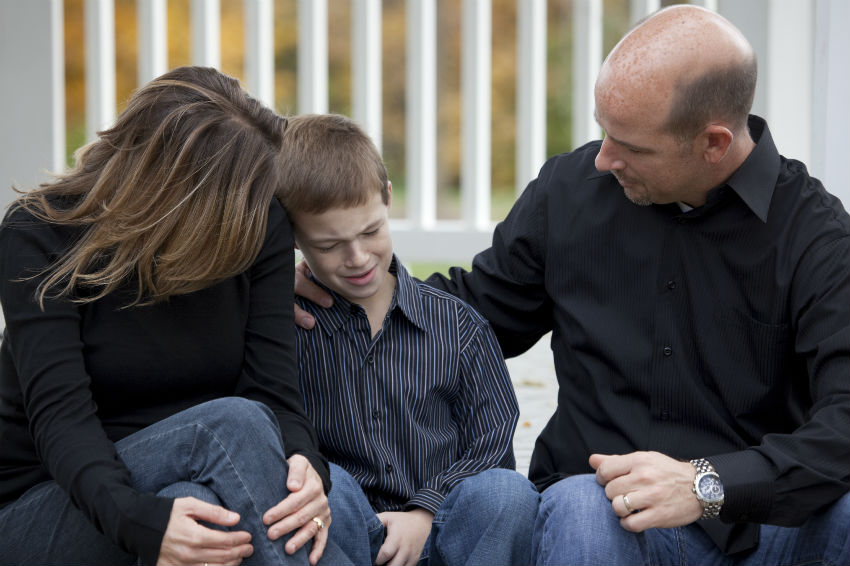 Usually, the parent with whom the child remains refers to the fact that the court has the right to divide the common property not equally in the interests of the children.
Usually, the parent with whom the child remains refers to the fact that the court has the right to divide the common property not equally in the interests of the children.
But I have not come across any solutions where children, against the will of one of the parents, would receive a share in the apartment on which this parent spent his money. The fact is that no matter which of the spouses has an apartment, the children have the right to live there. Therefore, it makes no sense to leave one of the parents more than meters. In addition, if the child later moves, taking back part of the apartment would be absurd.
paragraph 2 of Art. 39 SK RF
For example, in Tatarstan, a wife demanded that the common house be divided into four equal parts, including two common children. The court refused and divided the house equally between the husband and wife, because they both invested money in buying a house, and the father pays alimony for the children. The Court of Appeal upheld the decision.
How to file a claim for divorce with children
According to the law, in a divorce claim, if the spouses have common minor children, you must specify:
- In which court the application is filed.
- Information about the plaintiff - full name, place of residence and contact details. If the claim is filed by a representative, similar information about him is required.
- Information about the defendant - full name, place of residence, date and place of birth and, if known, place of work, passport details, SNILS or TIN, contact details.
- Where and when the marriage was registered, full name and age of common minor children. And also, do the spouses have an agreement on who the children will stay with and how the second parent will take care of their maintenance and upbringing.
- If one of the spouses does not agree to a divorce, the motives for divorce. For example, you can indicate that there are disagreements that the spouses can no longer resolve, or that the family relationship has actually ended.

- Request for divorce.
- If the spouses tried to reconcile - information about the actions taken.
- List of documents attached to the statement of claim - I will tell you more about them below.
Part 2 131 Code of Civil Procedure of the Russian Federation
paragraph 7 of the Decree of the Plenum of the Supreme Court of the Russian Federation dated November 05, 1998 No. 15
The plaintiff must sign the finished claim. Or a representative can do it for him, if he has the authority.
Part 4 131 Code of Civil Procedure of the Russian Federation
A statement of claim for divorce may look like this. You can copy sample Is it possible to combine claims with the division of property. Other claims may also be made in a divorce suit. For example, on the recovery of alimony for an ex-spouse, on determining the place of residence of a minor child, on the procedure for communicating with him, on the division of common property, and so on.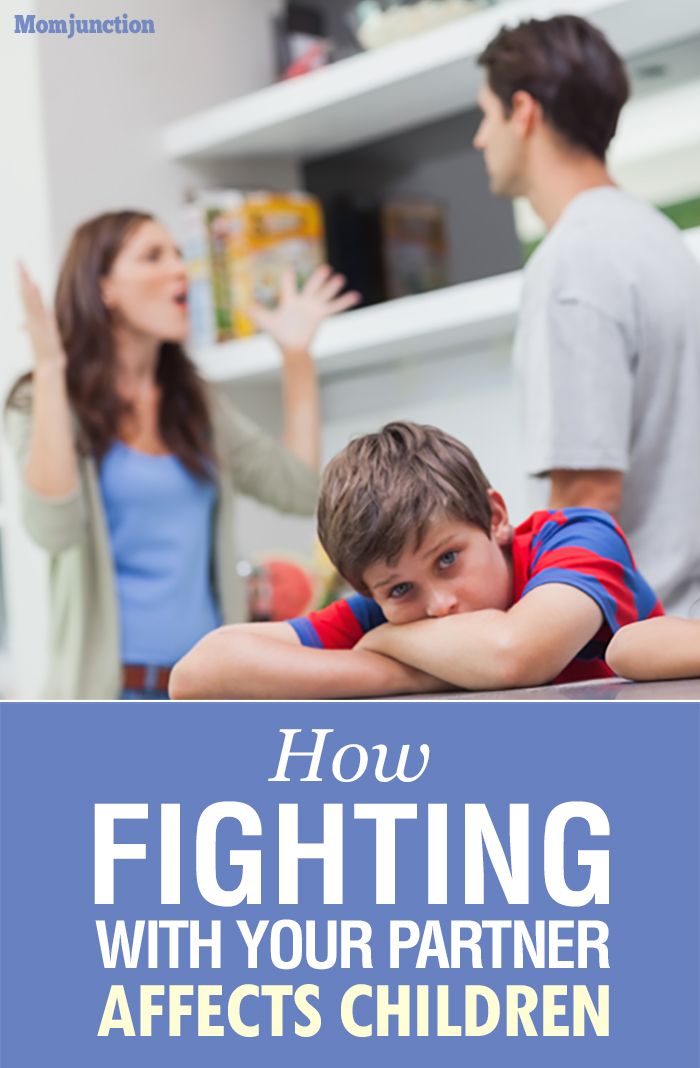 There can be any number of requirements.
There can be any number of requirements.
But it is important to understand that the more claims, the longer the court will consider the case. The court can consider a separate request for divorce in a month, and in another month the decision will enter into force if the second spouse does not appeal against it. And the process of dividing property, especially when there is a lot of it, can be delayed.
This happens because the court needs to establish the value of the property, find out who invested personal money in buying apartments and cars, who uses these apartments and cars, who will be better able to take care of a common dog, and so on. To do this, the court appoints expert examinations, collects documents, and interrogates witnesses.
What to do? 01/14/20
How to divide an expensive animal in a divorce
Also, almost always in the course of litigation on the division of jointly acquired property, spouses clarify their claims, make counterclaims.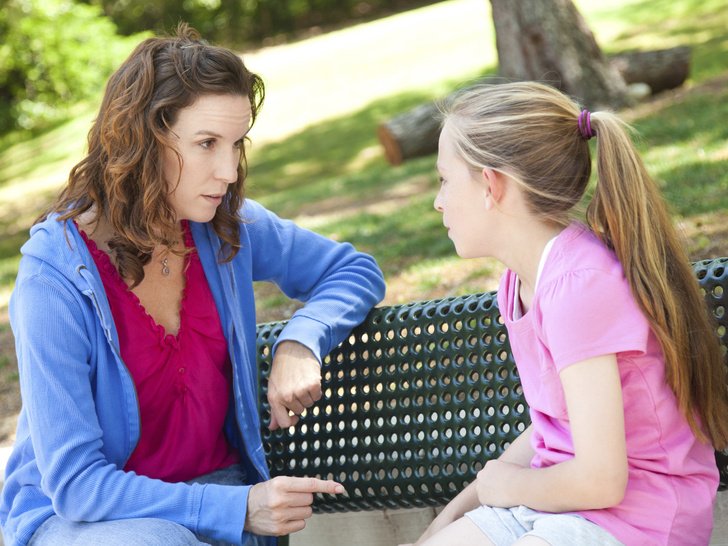 And this also lengthens the process.
And this also lengthens the process.
Another disadvantage of combining claims is that the court decision on the division of property is likely to be challenged by one of the spouses. And while there is no appeal ruling, the appealed decision will not enter into force. This means that spouses will continue to be considered husband and wife, with all the ensuing rights and obligations.
For example, in the Trans-Baikal Territory, a couple wanted to dissolve their marriage at the same time and share two cars, a garage, furniture, household appliances, and a bank deposit. Together with the appeal, it took them 14 months. And if they had asked for a divorce in a separate lawsuit, they would have divorced a year earlier.
/divorce-deti/
“The child must not be separated from the mother”: 10 questions for a lawyer about the rights of parents in a divorce
At first glance, if all the claims are made in one lawsuit, then you can save on legal services: wholesale is cheaper.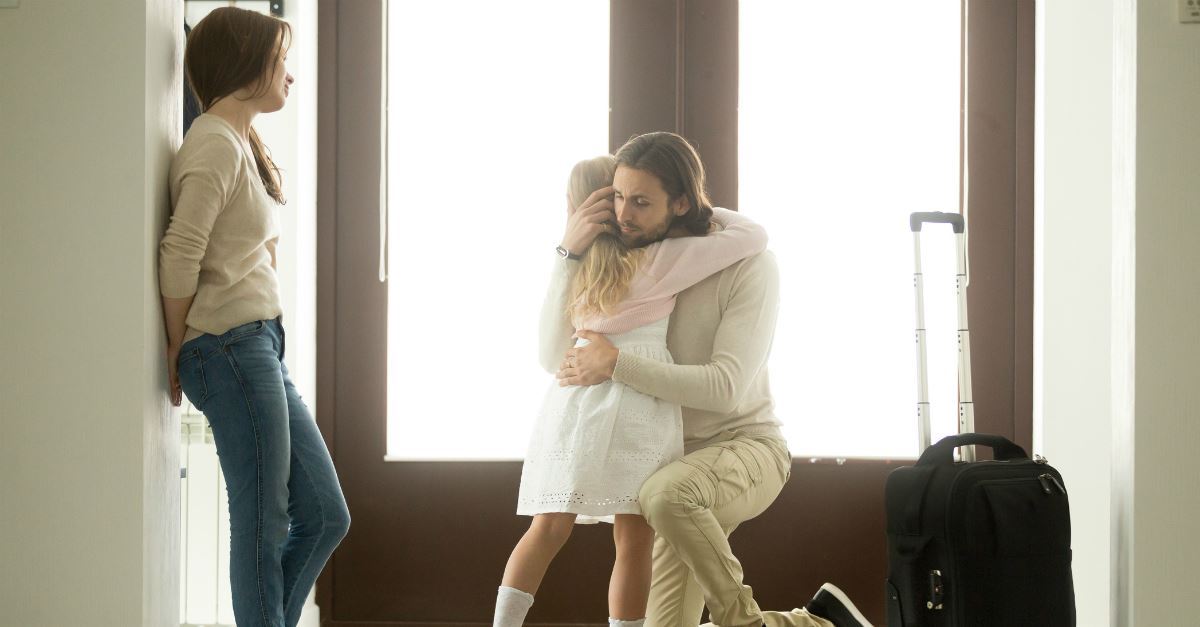 But actually no. You can just get a divorce without a lawyer, because it's not difficult. Or with a lawyer who will ask for less money for work. And disputes over the division of property are expensive and complicated. Therefore, I believe that it is inappropriate to pay extra for a tough lawyer for simple demands for divorce and child support.
But actually no. You can just get a divorce without a lawyer, because it's not difficult. Or with a lawyer who will ask for less money for work. And disputes over the division of property are expensive and complicated. Therefore, I believe that it is inappropriate to pay extra for a tough lawyer for simple demands for divorce and child support.
If you still want to combine all claims into one application, do not forget to indicate the price of the claim in it - this is the sum of all monetary claims. When dividing property, this is the value of the entire property, and for claims for the recovery of alimony, it is the total amount of payments for the year.
Art. 91 Code of Civil Procedure of the Russian Federation
What other documents are needed when divorcing children
A copy of the claim does not need to be attached to the statement of claim in court. Since 2019, instead of it, you need to attach a document that confirms that the plaintiff sent a copy of the claim to all participants in the case. Such a document, for example, can be a mail notification of receipt.
Such a document, for example, can be a mail notification of receipt.
Art. 132 Code of Civil Procedure of the Russian Federation
If the spouses live together, then the one who files for divorce may ask the other spouse to sign a copy of the claim. For example: “I received a copy of the claim, date, full name, signature.” A copy with a signature must be attached to the application to the court.
If loans or mortgages are to be divided in a divorce proceeding, a copy of the claim will have to be sent to the bank - by registered mail or in person at a branch. And if the spouses do not have an agreement on with whom the common child will remain, a copy of the claim is also sent to the guardianship authorities. When handing over documents in person, it is important to get a mark that they have been accepted. Let the employee sign your copy of the claim, indicate the full name, position and date of receipt.
Additional documents. In addition to documents confirming that all participants in the case received a claim, everything that substantiates the claims must be attached to the application.
If you are only applying for a divorce, you will need marriage and birth certificates for children and a receipt for payment of state duty. At the same time, it is necessary to transfer to other participants in the case only those documents that they do not have. That is, for the second spouse, it is not necessary to copy certificates, but for guardianship authorities, it is necessary.
/divorce-property/
“Now I can’t leave with nothing”: 9 more lawyer’s advice on the division of property in a divorce
receipts for the purchase of furniture and appliances, appraisal report, property value calculation, etc.
To collect alimony, it is worth attaching documents on earnings and other sources of income of the spouse. If there is an agreement on the payment of alimony or on the place of residence of a common minor child, copies of these agreements must also be attached to the claim.
If a representative will participate in the case on behalf of the plaintiff, a copy of the power of attorney must be attached to the claim.
Art. 49 Code of Civil Procedure of the Russian Federation
All documents are needed in copies, and the originals must be brought to the first court session for the judge to verify them. At subsequent meetings, the originals will not be required.
A copy of passport does not need to be attached - there is no such requirement in the law. But if you file a claim through the court office, you will need a passport to enter the court building and hand over the document to the secretary.
A certificate of the place of residence of children is prepared by the guardianship authorities during the trial, if the parents have not agreed with whom the common children will remain. Therefore, at the stage of preparing the claim, you will not have this document.
How much does the divorce procedure cost? 1, 5 p. 1 art. 333.19, sub. 12 p. 1 art. 333.20 NK RF
If common property is also divided in the process, you will have to pay an additional state duty and for this - from 400 to 60,000 R, depending on the value of the property.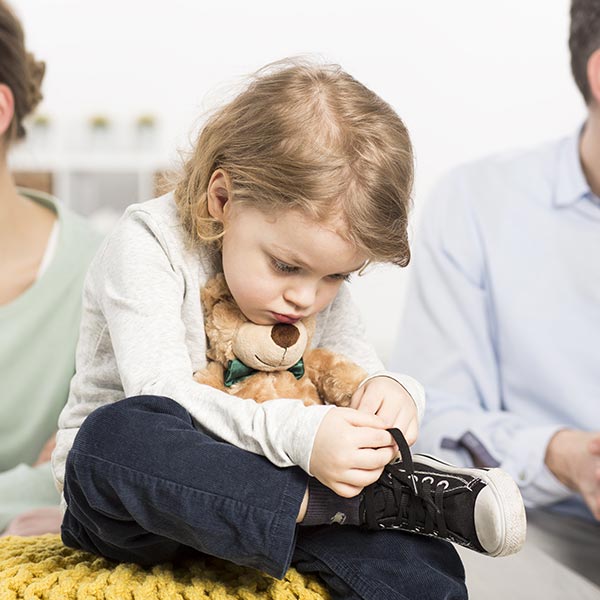 The duty is calculated as follows:
The duty is calculated as follows:
- if property worth up to 20,000 R is divided - 4% of its value, but not less than 400 R;
- if the property costs from 20,001 to 100,000 RUR - 800 RUR plus 3% of the amount exceeding 20,000 RUR;
- from 100,001 to 200,000 R — 3200 R plus 2% of the amount exceeding 100,000 R;
- from 200,001 to 1,000,000 R — 5200 R plus 1% of the amount exceeding 200,000 R;
- over 1,000,000 R — 13,200 R plus 0.5% of the amount exceeding 1,000,000 R, but not more than 60,000 R. 9
/divorce/ pay an additional 150 R.
For each additional requirement - for example, on determining the place of residence of the child or on the procedure for his communication with the second parent - you will need to pay an additional 300 RUR.
After the court divorces the spouses, you will need to pay a state duty for the registry office to register the divorce and issue a certificate.
 Its size is 650 R. Each spouse pays this state duty.
Its size is 650 R. Each spouse pays this state duty. para. 3 sub. 2 p. 1 art. 333.26 Tax Code of the Russian Federation
Notary fees. It is not necessary to spend money on a notary, but he can certify agreements on the place of residence of the child and alimony for him, as well as on the division of property.
State duty for notarization of the agreement on the place of residence of the child - 500 R, on alimony - 250 R. And for the certification of property agreements - 0.5% of the value of the property, but not less than 300 R and not more than 20 000 R.
paras. 6, 9, 5 p. 1, art. 333.24 Tax Code of the Russian Federation
This is not the entire amount that a notary will have to pay - they almost always charge an additional fee for legal and technical services. It is very difficult to convince a notary to perform a notarial act without paying for additional services. In what cases it is possible not to pay a notary for additional services, Tinkoff Magazine told in another article.

Community 23.04.21
How not to pay notaries for additional services?
How to apply
Through the court. A claim for divorce can be brought to the court office or sent by mail. It is difficult to say which option is faster: both there and there may be queues. Unless the cost of sending a letter and traveling to court may be different.
Through the public services portal. I have already told you how to file for divorce online. You will need the website of the GAS "Pravosudie" and an account on the public services portal.
It is important that through the public services portal, you can only file a claim with the district court. And if the claim only requires a divorce and there is no division of expensive property, you need to apply to a justice of the peace. This means that in order to submit documents, you will have to go to court or to the post office.
/kak-podat-v-sud/
How to file a lawsuit
The process of dissolution of marriage through a justice of the peace
Determining jurisdiction and filing an application.
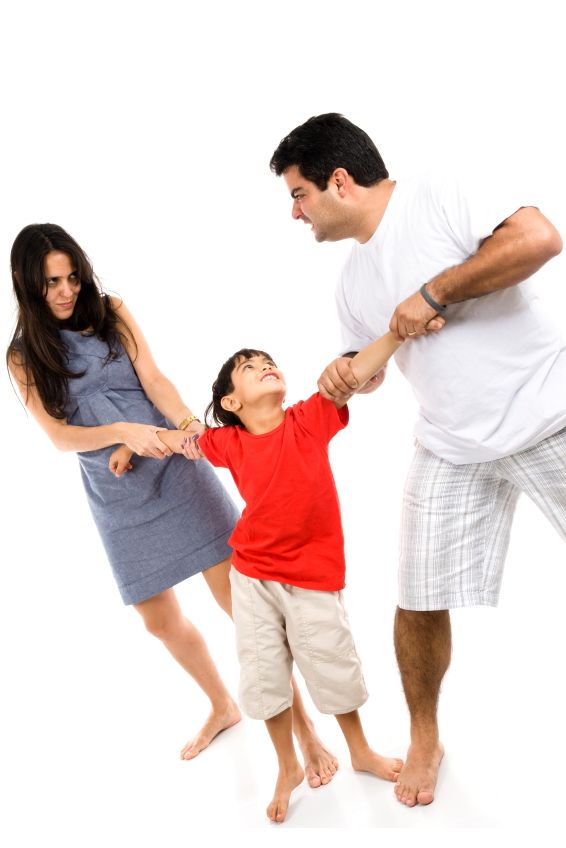 You need to file a claim for divorce with the court at the place of residence of the second spouse - the defendant. But there is an exception - the plaintiff can apply to the court at his place of residence if he has a minor with him or because of health problems it is difficult for him to participate in the process at the place of residence of the defendant.
You need to file a claim for divorce with the court at the place of residence of the second spouse - the defendant. But there is an exception - the plaintiff can apply to the court at his place of residence if he has a minor with him or because of health problems it is difficult for him to participate in the process at the place of residence of the defendant. Art. 28, part 4, 10 Art. 29 Code of Civil Procedure of the Russian Federation
Resolution of the issue of accepting a claim. From the moment a claim for divorce is received by the court, the judge has five days to accept or return it. The judge issues a ruling on this.
Art. 133, 135, 136 Code of Civil Procedure of the Russian Federation
If this is a ruling on the acceptance of a claim, it will contain the date of the court session. The court will also invite the defendant to submit written objections, and the plaintiff - additional documents. On the next working day, the secretary will send this determination to the spouses.

The justice of the peace will return the claim if the plaintiff forgot to sign it, or if the spouses have not agreed with whom the children will live after the divorce, or they share property worth more than 50,000 rubles. did not indicate the address of the spouse or did not hand him a copy of the claim. In the ruling on leaving the claim without movement, the court will indicate all the shortcomings and the date by which they can be corrected. If the deficiencies are not corrected, the judge will return the application to the plaintiff.
/court-divorce/
How to file for divorce through the courts
Preparing for the trial is the time during which the defendant can file a defense of the claim and his evidence. The court at this time may also ask for additional evidence from the parties, appoint an examination - for example, to assess the value of common property - or give the spouses time to reconcile.
ch.
 14 Code of Civil Procedure of the Russian Federation
14 Code of Civil Procedure of the Russian Federation Preparation for the trial ends with a preliminary hearing. Usually, just on it, the judge checks copies and originals of documents and finds out the defendant's opinion about the upcoming divorce. As a rule, nothing extremely important happens on it, but there is a risk that the judge will immediately proceed to consider the case and even make a decision - this happens. Therefore, I recommend that the plaintiff still come to the first hearing.
It is also useful for a defendant who does not want a divorce to be present at the first meeting. In it, you can ask for a period for reconciliation and thus delay the divorce. But if it is not possible to come to court, you can also ask for additional time to make peace in a written petition - it must be sent to the court in advance.
/prava/razvod/
Your rights in a divorce
A request for a time limit for reconciliation might look like this.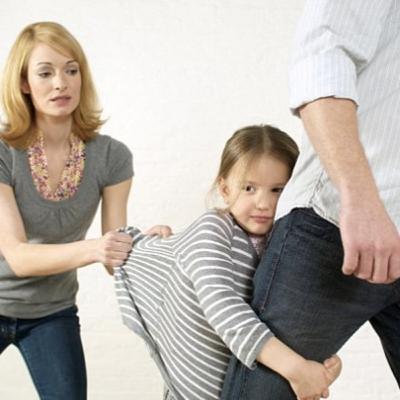 Source: base.garant.ru
Source: base.garant.ru It is not necessary to come to the court for subsequent hearings . Instead of yourself, you can send a representative or a written request to consider the case in your absence.
If neither the husband nor the wife, nor statements from them, are present at the hearing, the judge will check whether they have been notified. If it turns out that one of the participants in the case does not know about the process, he will postpone the meeting for another day. There is nothing wrong with this, but you need to understand that this delays the decision to dissolve the marriage.
Art. 167 Code of Civil Procedure of the Russian Federation
If the spouse who filed for divorce is notified, but missed two meetings and did not ask to make a decision in his absence, and the second spouse does not insist on the dissolution of the marriage, the judge will leave the case without consideration. This means that in order to get a divorce, you will have to go to court again.

para. 7-8 st. 222 Code of Civil Procedure of the Russian Federation
And if the defendant is notified, but the defendant does not come, the court considers the case without him.
This is how a petition to consider the case in the absence of the defendant may look like. The plaintiff can also write in the text of the petition that he supports his claims in full. Source: base.garant.ruExamination of evidence and arguments of the parties. If the spouses have common minor children, but both the husband and wife agree to a divorce and agreed on everything, the court will not examine the evidence for a long time and the case will end quickly.
If there is a dispute between the spouses, then each must prove his position. To do this, they collect documents and invite witnesses.
Imagine that one spouse sold a shared car without the consent of the other spouse. In this case, the second spouse will prove that the car cost 2,000,000 R and bring an appraisal report for this.
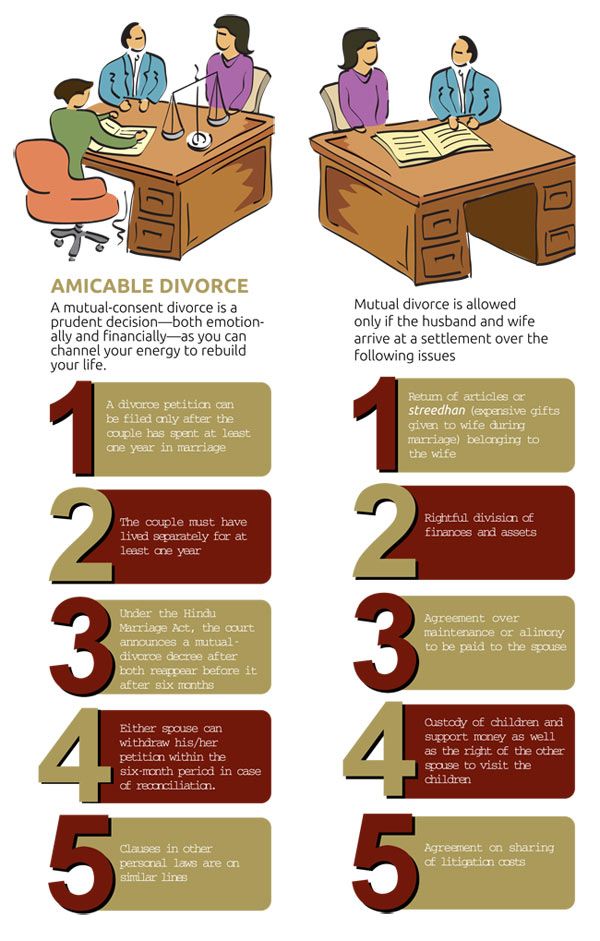 And the first one will prove that he sold the car for 400,000 R, and will bring a contract of sale for this.
And the first one will prove that he sold the car for 400,000 R, and will bring a contract of sale for this. Art. 56 Code of Civil Procedure of the Russian Federation
During the proceedings, the judge gives the right to speak first to the plaintiff, and then to the defendant. When the court examines all the evidence, it will give the husband and wife the right to speak briefly again - this is a judicial debate. And again, the first to speak is the spouse who filed the claim.
Art. 174, 190 Code of Civil Procedure of the Russian Federation
How to sue relatives is written in another article of Tinkoff Magazine.
Making a decision. The judge will consider the decision in a separate room. But not all judges have it, so often the judge stays where the trial took place, and the participants in the dispute go out to wait in the corridor.
Usually the judge reads only the operative part of the decision, but some judges leave to think for a long time and come out with a reasoned decision - one that explains in detail why the court decided so.

Art. 193 Code of Civil Procedure of the Russian Federation
The difference between a justice of the peace and a judge of a district court is that the second is obliged to draw up a reasoned decision within five days. And the justice of the peace is obliged to do this within the same period, but only at the request of the participants in the case - it must be filed within three days if you heard the operative part, or within 15 days if you missed the last court session.
Art. 193 Code of Civil Procedure of the Russian Federation
Enforcement of the decision. The marriage is terminated when the court decision on its dissolution has entered into force, that is, one month after the judge has accepted it in its final form. During the same period, one of the spouses can file an appeal - I have already told you how to do this.
Art. 25 SK RF
art. 209, 321 Code of Civil Procedure of the Russian Federation
Within three days after the decision enters into force, the court itself will send an extract from it to the registry office.
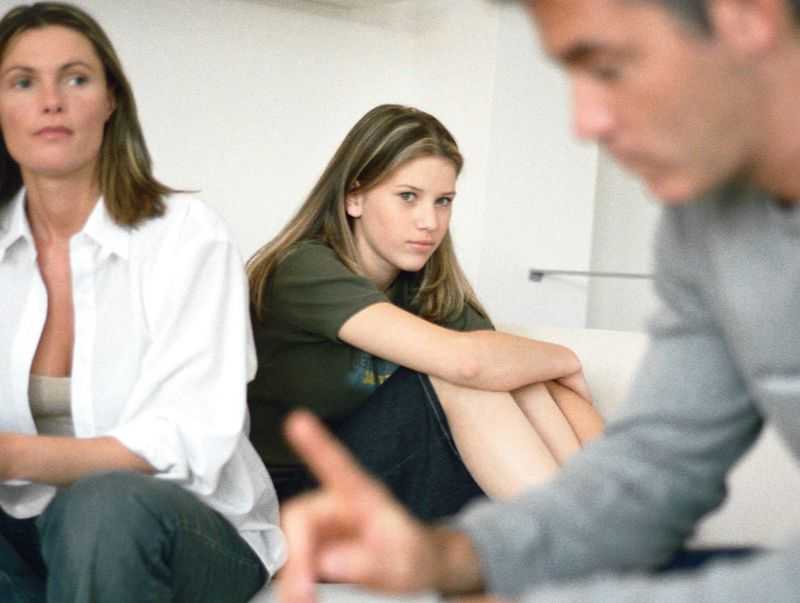 This means that the former spouses can do nothing more. Of course, they can go to the registry office for a certificate of divorce and a stamp in their passport, but they will be considered divorced even without them.
This means that the former spouses can do nothing more. Of course, they can go to the registry office for a certificate of divorce and a stamp in their passport, but they will be considered divorced even without them. Divorce through the District Court
Divorce through the District Court differs only in that more claims can be made and will take longer to process.
Terms of divorce in the presence of children
According to the law, the justice of the peace must divorce the spouses within a month from the date of acceptance of the claim. If the case is considered by the district court, he has two months to do so. If the dispute is complicated, the judge has the right to add another month to the deadline.
Art. 154 Code of Civil Procedure of the Russian Federation
If one of the spouses has new claims in the course of the process, the term for the consideration of the case will need to be calculated from the beginning. The same thing will happen if the guardianship authorities are not immediately involved.

Art. 39 Code of Civil Procedure of the Russian Federation
Another month must be set aside for the entry into force of the decision - the period is counted from the date when the judge makes a reasoned decision to dissolve the marriage.
Art. 321 Code of Civil Procedure of the Russian Federation
Only after that, if no one appeals the decision, the divorce will take place.
Can a court refuse a divorce
A court cannot refuse a divorce and force people to live together against their will. But if one spouse wants a divorce and the other does not, the judge can give the parties up to three months to reconcile. That is, the divorce process can drag on for some time. But even six children are no reason to refuse a divorce.
An amazing story 04/16/19
The story of one divorce through the court
The only exception, which I wrote about above, is the wife's pregnancy or a common child under one year old, if the spouse does not agree to a divorce.
 In this case, the court will refuse to divorce, and the husband will have to wait.
In this case, the court will refuse to divorce, and the husband will have to wait. What surname the child will have after the divorce of the parents
After the divorce of the parents, the child will retain the surname that he had before the dissolution of the marriage. But in some cases it can be changed.
As a general rule, parents must agree on the name of the child. Therefore, to change it, you need the consent of both parents. The consent of the child himself is also required if he is over 10 years old. And if the child is under 14 years old, then also the consent of the guardianship authorities.
Art. 58, 59SK RF
The opinion of a parent who does not live with a child may not be taken into account. This is possible if:
- it is not known where this parent lives;
- he is deprived of parental rights;
- declared incompetent;
- avoids his parental duties - for example, does not pay child support.

In other cases, even if the parents do not live together, the opinion of the other parent will still have to be taken into account.
Remember
- If there are common minor children in the family, divorce will almost always have to be done through the courts. But in some cases, it is also possible to dissolve a marriage through the registry office: for example, if the second spouse is deprived of liberty for a period of three years or more.
- If there is no dispute about who the children will be left with, you can get a divorce through a justice of the peace in a month. If there is a dispute, you will have to go to the district court.
- You also need to go to the district court when, during the divorce proceedings, the spouses want to share jointly acquired property worth more than 50,000 R or resolve maintenance issues. Then the trial can take a long time.
- The court may refuse a divorce if the spouse is pregnant or the common child is less than a year old and the wife does not agree to the divorce.
 In other cases, the court can only give the spouses up to three months to reconcile, and if they do not reconcile, then divorce them.
In other cases, the court can only give the spouses up to three months to reconcile, and if they do not reconcile, then divorce them.
Instruction: how to get a divorce and not harm a child
Life with children
Instruction: how to get a divorce and not harm a child
Katya Klementieva
18 October 2021 17:53
0002 Often, during a divorce, adults do not seek help from a psychologist, although this event can cause anxiety or fear in their children and negatively affect their future life. We talked with psychologists about what kind of trauma a divorce can cause, how to behave properly and help a child get through everything without stress.
How does divorce affect children?
Chmutova: Everything depends on the context: how adults behave, how and in what conditions the family lived. But usually, during a divorce, the usual course of things is disrupted, which affects the sense of security in children: stability and predictability are important to them, which disappear.
 This, in turn, affects their psychological state.
This, in turn, affects their psychological state. The most traumatic thing is misunderstanding - when the child is not explained what is happening and why. Also, if one of the parents, consciously or not, broadcasts the idea “you are not good enough”, “dad and I quarreled because of your bad behavior”, children can take the blame for the divorce.
Belova: In the vast majority of cases, divorce is a traumatic event for a child, because it is associated with the people closest to him. There are a lot of changes, and most often they are unpleasant. The state is also strongly influenced by how adults behave. Parents who project their relationships onto their children reduce their quality of life. For example, a child is presented with a choice, or he is constantly at the center of a conflict.
But it happens that a divorce does not negatively affect children: if due to it some conflicts and even more traumatic situations disappear - or if it happens very carefully and carefully.
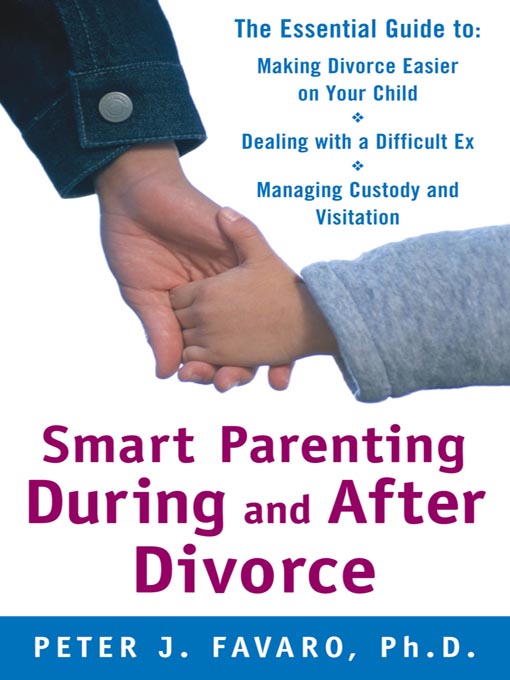
What kind of injuries can happen?
Chmutova: Basically, the feeling of uncertainty hurts. The child may begin to worry, and later, when he grows up, it will be difficult for him to endure any incomprehensible situations. There may also be feelings of guilt and shame due to some kind of childhood trauma associated with divorce. If everything happens very abruptly - there were good relations in the family, the parent took the child to kindergarten, played with him, and then suddenly disappeared or changed his attitude towards him, then a feeling of abandonment may appear.
In the future, it will be difficult for a person to build functional relationships because of the fear of parting. A scenario will arise in which he starts a relationship, but quickly ends it to get a sense of certainty.
Children under three years of age are more comfortable with divorce, because at an early age the main person for them is their mother, and they can quickly get used to a family with one parent if she stays with them.
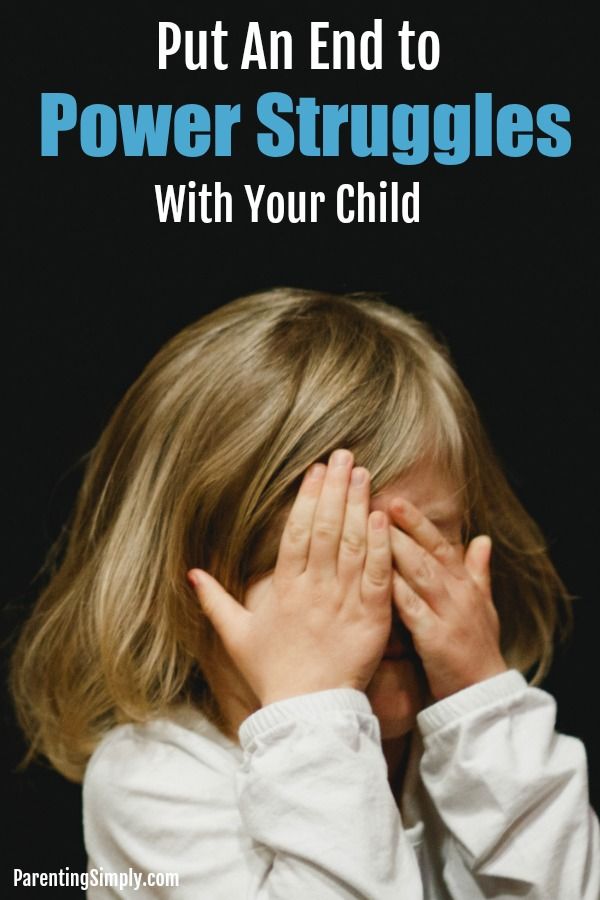 A child who has already established attachment with both adults reacts more painfully to their separation.
A child who has already established attachment with both adults reacts more painfully to their separation. It is difficult for children of primary school age to understand that parents have the right to privacy. It is especially difficult if the parent who is leaving stops communicating with the family. It is easier for teenagers to explain relationships between adults.
How do you know when you need specialist help?
Chmutova: Symptoms that should alert are changes in behavior: the child began to get nervous, cry often, sit alone or be sad, show aggression or study worse. It is worth paying attention to physiological symptoms (tics, enuresis), new phobias or unwillingness to be alone. If one parent leaves the family, then children may stop letting the other go for fear that he will also disappear. All this is a reason to ask for help.
Belova: In general, a consultation with a psychologist is never superfluous during a divorce, because everything around the child changes, and this causes stress.
 It is important to seek help if you notice changes in the behavior or emotional and physiological state of children.
It is important to seek help if you notice changes in the behavior or emotional and physiological state of children. Is it worth it to stay together for the sake of children?
Chmutova: A child really needs both a mother and a father, except in cases where one of the parents was not present from the very beginning. Then another family structure is perceived normally and does not cause discomfort. Living in a bad relationship, cursing, being alienated or in conflict, of course, is not worth it.
Our task is to teach children to build functional, satisfying relationships and be happy, and not just maintain a formal family status.
Naturally, the child wants everything to be as it was before, and may ask not to get a divorce, be offended, or say that he will leave home so that his parents can be together. Here you need to correctly explain the situation, for example: “Yes, we stopped loving each other, but nothing will change.
 We are your parents and we will continue to take care of you.” The main thing is not only to voice it, but also to behave as you promised.
We are your parents and we will continue to take care of you.” The main thing is not only to voice it, but also to behave as you promised. Belova: For a child, loving adults nearby and calm, comfortable atmosphere are more important. The fact that having mom and dad next to you is the most important thing is, of course, a stereotype, because if people constantly swear, then nobody needs it. There are even times when a child wants the parents to separate.
Naturally, two loving parents are wonderful, but only if everything is fine between them . The atmosphere is more primary, and it is better to live separately and be in good condition than side by side, but hate each other and spoil the quality of your life and the life of a child.
How to get a divorce without harm to the child?
Chmutova: In order to protect a child from injury, you need to be honest with him and keep things familiar to him as much as possible.
